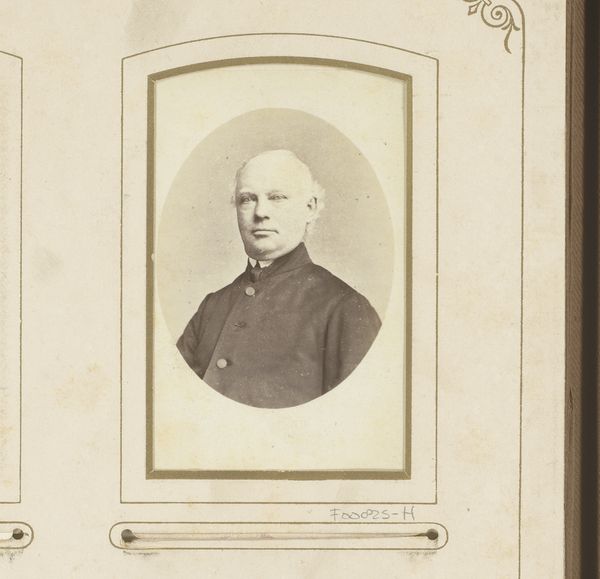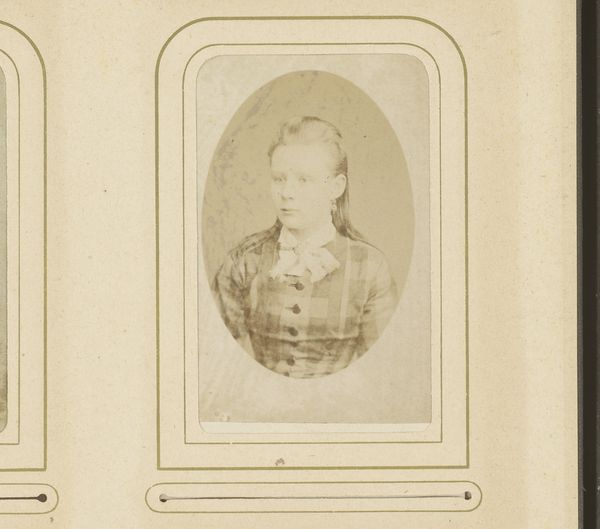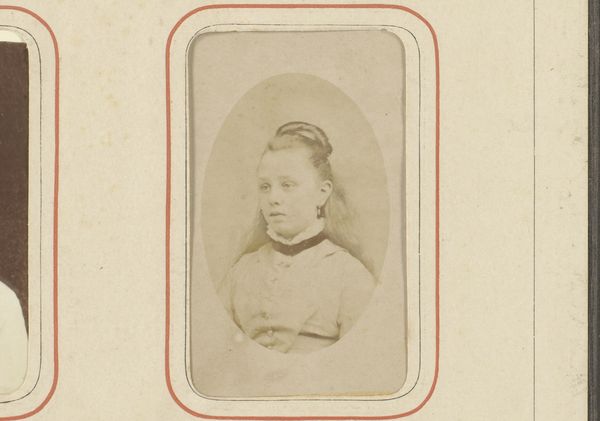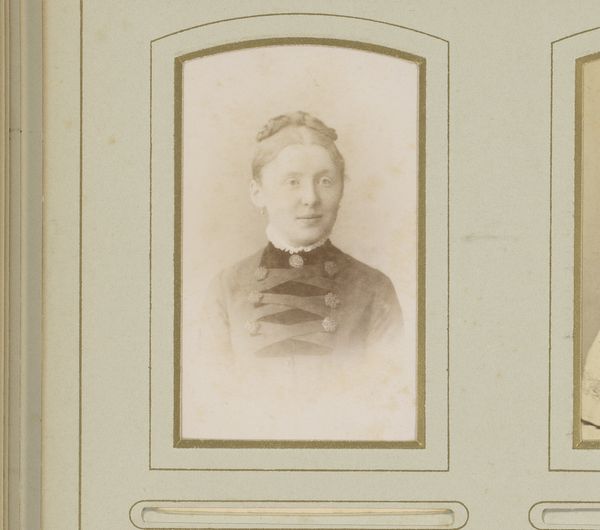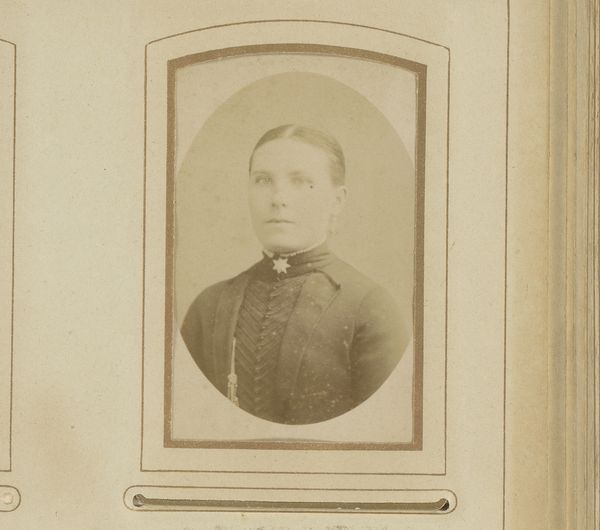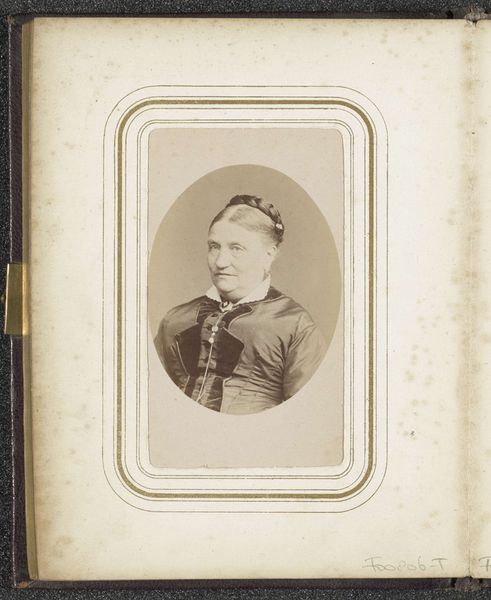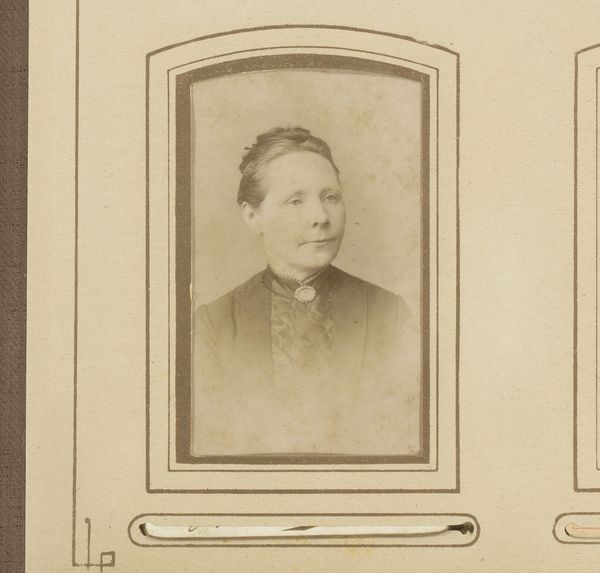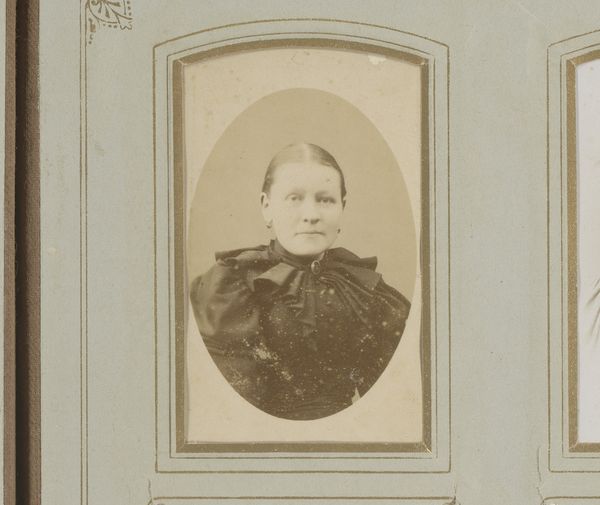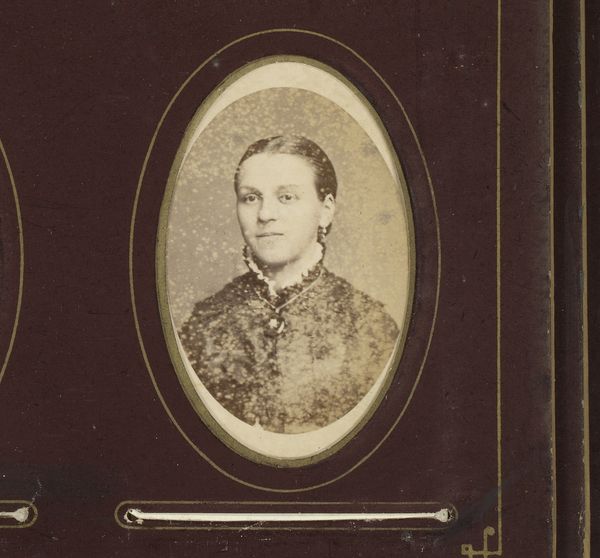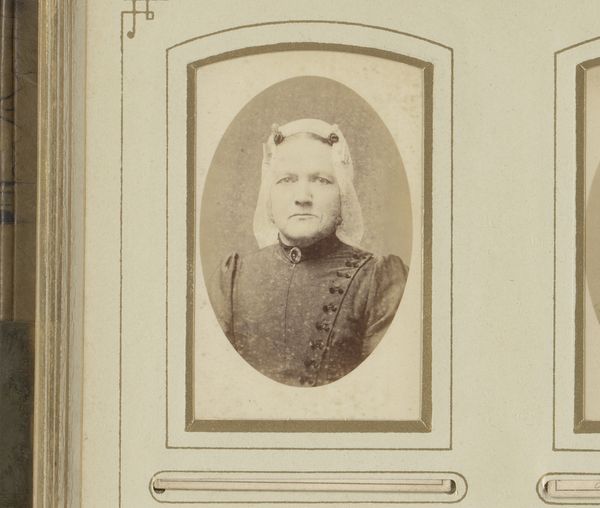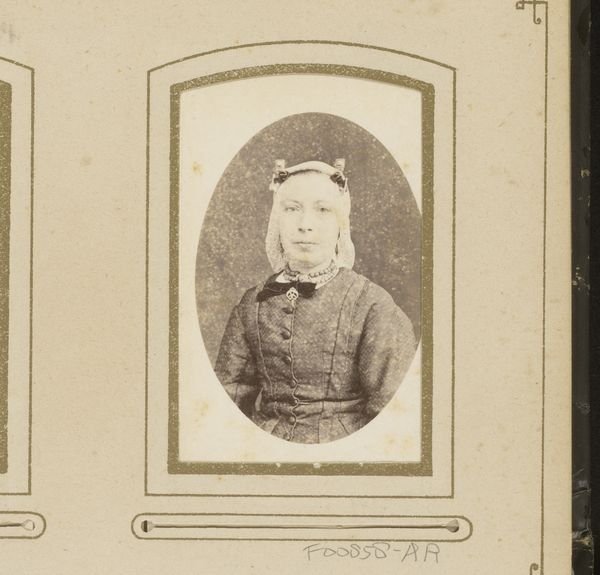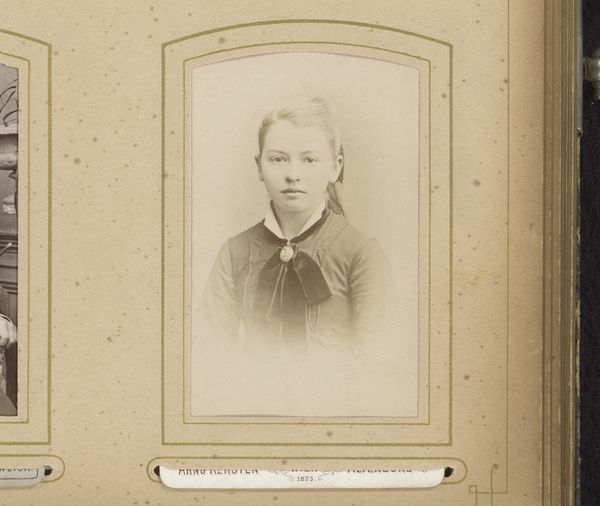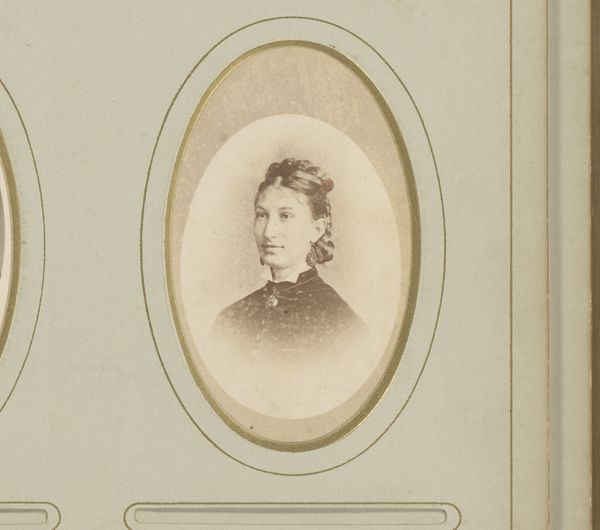
photography
#
portrait
#
photography
#
realism
Dimensions: height 80 mm, width 50 mm
Copyright: Rijks Museum: Open Domain
Editor: We're looking at "Portret van een vrouw," or "Portrait of a Woman" by Bernardus Hendricus Christophorus Brugman. It's a photograph, dating from sometime between 1875 and 1911. It's striking how composed and… reserved the subject seems. What can you tell me about it? Curator: This portrait provides a fascinating window into the visual language of the late 19th century and the social expectations surrounding women, especially within the emerging middle classes. Look at her tightly pulled-back hair, the high neckline, and the absence of any overt expression of joy or defiance. How does this imagery align with the contemporary social discourse around women's roles at the time? Editor: I guess it speaks to ideals of domesticity, but I wonder about her personal experience beyond that. Curator: Exactly. Photography during this period was heavily influenced by class and gender dynamics. Access to portraiture was a marker of status, but more importantly, it framed the subject, especially women, within specific ideological constraints. Notice how the composition directs our gaze—do you find yourself wanting to know more about the artist or sitter? Editor: Probably the sitter more, as she is nameless for us. Curator: Indeed, so, how can we interpret her expression within the limited agency afforded to women of that era, or could it reveal some act of quiet resistance? Her lace collar, her pose -- details like that can reveal her social aspirations. Do you see any indicators of social aspiration here? Editor: Her clothes are nice and modest. This image feels less about unique beauty and more about reflecting social respectability, something more accessible to a broader population at the time, maybe. I've definitely learned to look deeper! Curator: I'm glad to hear. Recognizing the context of an image like this makes it resonate differently.
Comments
No comments
Be the first to comment and join the conversation on the ultimate creative platform.
